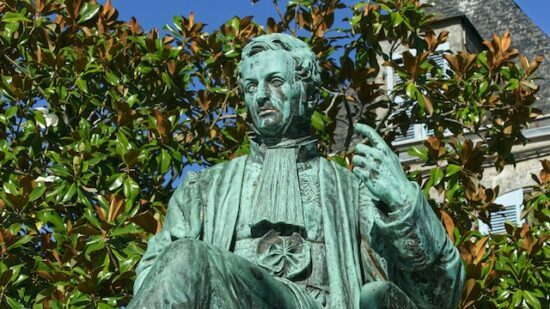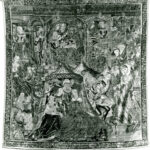Joseph Halléguen was born on July 2, 1916, in Quimper, Finistère, France, and passed away on January 31, 1955, in the same city. He was a prominent figure in the French resistance movement during World War II and later pursued a career in politics.
Born to Jean-Louis Halléguen, a traveling salesman, and Marie-Louise Guéguen, Joseph Halléguen received his education at the small seminary in Pont-Croix and later attended the Gregorian University in Rome. Prior to the war, he worked as a cooperative worker in Zahlé, Lebanon. In 1939, his proficiency in English led to his appointment as a liaison officer secretary to Robert de Kersauzon, a British Army Officer stationed at the Consulate of France in Palestine. When the war broke out and General Charles de Gaulle issued his famous Appeal of June 18, 1940, Halléguen joined the Free French forces in Jerusalem, where he played a crucial role in broadcasting the Free French radio program targeted at Syria and Lebanon.
In 1941, Halléguen embarked on a journey up the Nile and down the Congo River to Camp Colonna d’Ornano in Brazzaville, a training ground for aspiring officers of the Free French forces. From there, he traveled to England, where he joined the Royal Air Force Instruction Center in Camberley in 1942. Halléguen underwent rigorous training in Canada and, under the pseudonym “Pierre Hallet,” published several patriotic articles in Montreal’s “Le Jour” newspaper. As a navigator, he flew 72 bombing missions with Squadron 342 of the Free French Air Force.
After being demobilized in 1945, Halléguen worked as a Mission Officer at the Ministry of Information, contributing to various projects, including the “Livre et arts graphiques indochinois” exhibition at the National Library. He also became actively involved in politics, serving as the departmental delegate of the Rally for the French People (RPF) in Finistère. In 1947, at the age of 31, he was elected as the mayor of Quimper, a position he held until 1953. During his tenure, he played a key role in revitalizing the Festivals of Cornouaille and establishing a twinning relationship between Quimper and the city of Falkirk in Scotland.
In 1951, Halléguen was elected as a deputy for the RPF in the Finistère department. However, he resigned from this position after a year to join the Action Républicaine et Sociale (ARS) party. In 1953, he served as the rapporteur of a parliamentary commission responsible for studying the “consequences of Saharan unity” and conducted a mission to Tunisia and Morocco.
Halléguen was also actively involved in Breton cultural affairs. He, along with Joseph Martray and René Pleven, co-founded the Comité d’Études et de Liaison des Intérêts Bretons (CELIB) in 1950, with Halléguen assuming the role of president of the executive board.
Tragically, Joseph Halléguen passed away in Quimper on January 31, 1955, at the age of 39. To honor his memory, a committee of over 200 friends and supporters commissioned a memorial featuring a bronze effigy sculpted by René Quillivic. During the memorial’s inauguration two years later, Auguste Dupouy, a close friend of Halléguen, described him as a “remarkable individual”.
Joseph Halléguen also displayed his talents as an author. He wrote a book titled “Aux quatre vents du gaullisme 1940-1952 – Tome 1. Introduction au désordre français,” which was published in 1953 by Éditions Dervy. Additionally, he contributed an article titled “La belle de nos songes ou l’Europe à son berceau” to the magazine “L’âge nouveau – Idées Lettres Arts” in December 1952.
Sources







